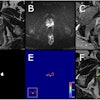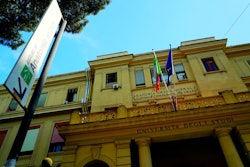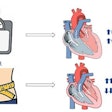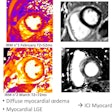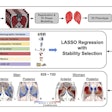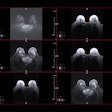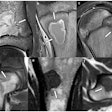Three senior radiologists and a cardiologist in Rome are likely to have to stand trial for the care they gave to the well-known investigative journalist Andrea Purgatori, according to reports in the Italian media.
The Public Prosecutor's Office has completed its investigation into the work of radiologist Prof. Gianfranco Gualdi -- plus Dr. Claudio Di Biasi and Dr. Maria Chiara Colaiacomo (both part of Gualdi's team) -- and cardiologist Prof. Guido Laudani. The prosecutor's report has accused them all of manslaughter, and claims "incompetence, negligence, and imprudence" in the care of the journalist who died from infectious endocarditis in July 2023, noted an article posted on 9 December by Il Messaggero, a daily newspaper in Rome.
The report concludes that the neuroradiologists did not correctly report the MRI examination conducted on 8 May 2023. They gave a clear diagnosis of brain metastases, which in reality never existed, and they failed to mention the possibility that the described anomalies could be attributed to ischemic lesions, the article pointed out.
Furthermore, in subsequent discussions with the patient and his family, as well as with other involved healthcare professionals, Gualdi asserted that, based on the erroneous diagnosis, it was necessary to start Purgatori's radiotherapy to address the serious and priority cerebral metastatic emergency, the prosecutor's report stated. All of this "not only caused the patient to undergo unnecessary and debilitating therapy but also led to a serious misdirection in the diagnostic and therapeutic approach of other healthcare professionals, also due to the failure to detect ischemic lesions whose cause would have needed to be investigated without delay," it said.
The report referred to "a catastrophic sequence of errors and omissions," and stated that a proper diagnostic and therapeutic approach would have given Purgatori more chance of a longer survival. According to the scientific literature, the one-year survival rate is 80% if endocarditis is promptly and adequately treated, noted Il Messaggero.
Endocarditis could have been identified more promptly, at least at the beginning of the hospitalization period from 10 to 23 June 2023, or even in late May 2023 if the neuroradiologists had correctly assessed the results of the tests conducted on 8 May, it added.
According to an article posted by the news website, notizie.it, the prosecutor's report raises serious questions about the quality of care given to Purgatori and the work of the doctors involved, and it also causes concerns about patient safety and the reliability of the health system.
Action by Purgatori family
Following completion of the prosecutor's report, it also appears likely that the Purgatori family will now go ahead with their own legal action against the four doctors.
According to a report posted on 9 December by Corriere.it (access requires log-in), for whom Purgatori used to work, Di Biasi is accused of falsifying medical records to conceal diagnostic errors. "In order to hide the diagnostic error, he insisted on the non-existent metastases, while Laudani failed to set up a correct diagnostic path that would allow the causes of the ischemia to be identified."
The accused physicians' lawyers maintain their clients' innocence, citing adherence to medical standards, while the investigation suggests these missteps significantly shortened Purgatori's life expectancy, the article continued.
Laudani's lawyer, Nicola Madia, reportedly said: "Purgatori died due to the natural complications of a very serious lung tumor with metastases. My client operated in compliance with good practices." Fabio Lattanzi, the lawyer who acts for Di Biasi and Colaiacomo, stated: "The fact remains that the proceedings will end with an acquittal. The examination of the experts and their answers determine the certainty that my clients have no responsibility."
In another article posted on 10 December by Corriere.it, Andrea Purgatori's children -- Edoardo, Ludovico, and Victoria -- have described in a letter their father's final months as a "meticulously studied agony." Their letter underscores a sequence of medical negligence and false certifications, and the family expresses frustration and sadness, acknowledging that understanding these failings only deepen their grief, the report noted.
A follow-up piece published on 13 December by Corriere.it referred to a disturbing set of scientific events going on behind the scenes.
Gualdi reportedly involved his oncologist colleague Dr. Luca Marchetti (not under investigation), of whom Ludovico Purgatori said: "Dr. Marchetti took an initial position (prescribing chemotherapy treatments) only by reading the reports and reserving the right to confirm it only after consulting with the staff of the UPMC Hillman Cancer Center in San Pietro in Rome, where he (Andrea Purgatori) would have undergone radiotherapy."
Those "suspicious spots" or metastases were treated as such following three MRIs performed by Prof. Alessandro Bozzao (head of neuroradiology at Sapienza University of Rome), the article noted. In front of police witnesses, Bozzao reportedly said: "I noticed a larger lesion in the left parieto-occipital area and some smaller lesions on both cerebral hemispheres." Bozzao found small, widespread ischemias of a different nature, suggesting a cardiological cause, stated the Corriere.it article.
Gualdi was born in Rome on 27 July 1948 and has been a consultant Vatican radiologist since 1980, according to his biography on the casadicurapioxi.it website. He was a director of emergency radiology at the Umberto I Hospital in Rome and a full professor of emergency radiology at La Sapienza University of Rome. Gualdi is thought to have been retired since 2019, while Di Biasi was due to retire from his post as a radiologist in the emergency department of La Sapienza University Hospital in March 2024.
In early 2024, legislative changes were made in Italy, and there is now a degree of leniency in certain interpretations of the penal code. This applies only to the penal code, not the civil one; there are two distinct legal frameworks in Italy. These changes are having a major impact on clinical practice, according to an ECR 2024 video interview with ESR Immediate Past President Prof. Carlo Catalano.




